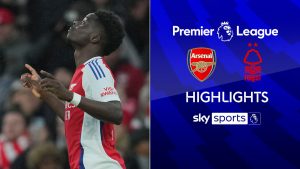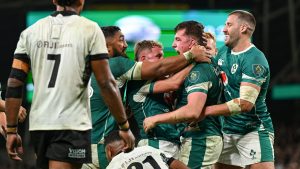Bolton in crisis as players strike, club heads to High Court


The days of Youri Djorkaeff, Jay-Jay Okocha and Fernando Hierro running out to play Premier League games for Bolton are a distant memory for long-suffering fans of the English soccer team.
Now, the club is in a complete mess — and, in the worst-case scenario, could yet go out of business.
On Wednesday, Bolton officials are due in the High Court in central London over an unpaid tax bill of 1.2 million pounds ($1.6 million) and other debts. Britain’s tax department says the club will go into bankruptcy protection if it doesn’t pay what it owes.
The problems are many at Bolton, which is now languishing in next-to-last place in the second-tier League Championship and is likely to be relegated to the third division in the coming weeks.
The club — one of the 12 founding members of England’s Football League in 1888 — is in a dire financial position, with its players currently on a 48-hour strike in support of staff whose wages were not paid on time for the second straight month. It is the second time in less than a year that players have taken such action.
In addition, the team will have to play its next two matches behind closed doors after Bolton’s safety advisory group decided Tuesday that the club could not guarantee the safety of fans at the stadium. The group, which comprises representatives of the local council, police and emergency services, informed the Football League that it has placed a prohibition notice on the club.
With Bolton desperate for wins in an effort to escape relegation, having no supporters for the games against Ipswich on Saturday and Middlesbrough on April 9 is a big blow. The team is five points from safety with seven games left this season.
Through all of this, Bolton chairman Ken Anderson, a former agent who bought the club in 2016, says he is hitting obstacles in his efforts to sell it — infuriating fans in the process.
The latest in a series of bullish updates from Anderson was published Tuesday, in which he said “talks are ongoing with buyers” whose “advisors (say) that they are in a position that will enable completion to take place shortly.”
Anderson urged the team’s players to go back to work, saying their decision “has a negative rather than a positive logic behind it.”
“I have read that the players and management staff have said that being paid late does not actually motivate them to go out and perform on the pitch,” Anderson said, adding pointedly: “That is fully understandable, but perhaps they could also explain why the results up to Christmas were not exactly impressive either?”
And in remarks that likely didn’t go down well with club staff yet to be paid their salary, Anderson said: “Let’s remember, yesterday was only April 1, so it is not as if it is weeks late, is it?”
These latest events contrast sharply to the Bolton of 15-20 years ago when the club was well run and constantly punched above its weight before its relegation in 2012, which ended 11 straight years in the top flight.
Bolton reached the last 16 of the now-defunct UEFA Cup in 2008. At the end of the stewardship of Sam Allardyce (1999-2007), the team finished in the top eight of the Premier League every year from 2004-07 and was a beaten finalist in the English League Cup in 2004.
There were two glorious years — from 2002-04 — when Bolton’s attack was led by Djorkaeff, a World Cup winner with France in 1998, and Okocha, a Nigerian whose flair and skills made him one of the most watchable players in the world’s most watched league.
Now, many soccer fans only hear of Bolton in relation to a crisis that is damaging the reputation of one of the English game’s most famous names.






